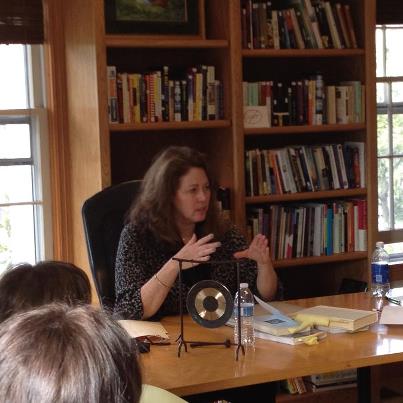
When I first began working on my dissertation, I noticed that each time I tried to explain my project to a willing listener (or an unwilling one—I wasn’t picky), my description, and consequently my understanding of, the project shifted with each telling. Maybe I would discover dimensions or connections I hadn’t noticed before, or I might uncover a limitation in my research methods because my data didn’t yet lead to what I claimed my argument was. Each attempt to articulate the project brought new discoveries.
Such is the power of language to shape ideas that otherwise float untethered through the ether of our imaginations. When we think in our heads, it might be in images or emotions or words or some combination of these. But speak them aloud, and especially write them down, for a communicative gesture, and we’re compelled to impose structure onto thoughts and ideas. This process of selecting words and creating sentences and paragraphs that communicate causality and relationships causes the chain reaction of compelling us to commit to a particular vision of our reality. It’s heady stuff, really.
This is why those of us intent on making some other significant commitment or change in our lives are encouraged to “write it down.” Ideas, commitments, experiences—they look different when they exist as documents outside of ourselves, documents we can revisit and craft. This also accounts for the popularity of journaling and memoir writing. The shaping act of writing, when done well, requires a kind of processing that keeps you in the moment but also at a healthy distance from it.
I recently participated in a one-day workshop at the Westport Writers’ Workshop that engaged in this exact work. Entitled “The Healing Art of Writing,” the workshop was led by Fran Dorf, a psychotherapist and writer (the novels “Saving Elijah,” “Flight,” and “A Reasonable Madness”). In just three hours under Dorf’s direction, we generated ideas, wrote, shared our writing, and learned elements that create compelling writing (whether fiction or memoir), from word choice and sentence structure to narrative cohesion. Exacting and also kind, Dorf shared examples of writing that works and, more importantly, knew how to explain why it worked. I couldn’t help but wonder how much would be accomplished in one of Westport Writers’ Workshops eight or ten-week sessions.
“We are about good teaching and elevating the level of craft,” founder Jessica Bram said after the session.
The workshop I attended clearly featured both, recognizing that a writer needs in equal measure good ideas and the knowledge of language to execute those great ideas. Dorf will teach an eight-week “The Healing Art of Writing” class this spring, meeting on Wednesdays from 2 – 4 p.m. One-time workshops in February, March, and April, led by strong teachers who are also experienced professionals active in their fields, focus on everything from scene building to researching for a non-fiction book to effective business writing to how to publish an e-book. If you are working on a writing project or want to be, you will want to check out their courses.
Westport Writers’ Workshop is located at 3 Sylvan Road South in Westport. For more information, phone (203) 227-3250, email info@westportwritersworkshop.com, or visit them online at www.westportwritersworkshop.com.
Photo of Fran Dorf at Westport Writers' Workshop courtesy of Jessica Bram.